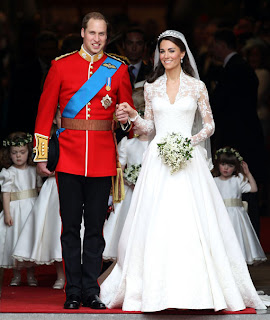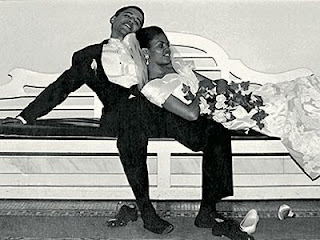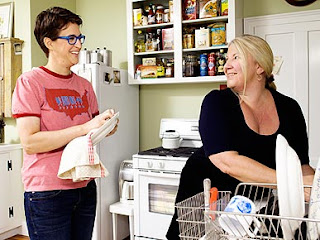An Introduction from Coco: Hello! I am excited to see this blog started up again. It is written by my sister, Jaime Coon, who has always been and continues to be an active ally to the queer community. This blogpost explores what it means to be an ally to the trans community, and offers some insight and advice from members of the trans community. For more information on trans issues, you can check out my blog, "Free to Be: Transcending the Gender Binary."
Transpeople experience unbelievable levels of violence and discrimination. Allies can play a significant role in supporting people who identify as trans and making spaces safe for all people, but many allies or would-be allies (including myself!) are woefully uneducated or unaware of the issues transpeople face. Often even the most well-meaning people do not know how to be an effective ally. I’ve always thought of myself as one of the better-informed allies, a role I’m proud of.
However, I’ve recently had to practice what I preach in a deeper way than ever before. My sibling Coco recently suggested that I start using they/them/their pronouns to refer to them. Not only was this an impetus for me to educate myself on issues related to the trans community, but it has also made me aware of how little people know about transpeople and how to support them.
 |
| Source |
First, let’s get some definitions out of the way.
Trans//adj (from Wikipedia): people experience a mismatch between their gender identity or gender expression and their assigned sex. Transgender is an umbrella term which may include genderqueer people whose identities are not exclusively masculine or feminine, but may, for example, be bigender, pangender or agender. (Also, don't use "transgendered, read why here).
Cis//adj: people who do not experience a mismatch between their gender identity or gender expression of their assigned sex.
1. Listen first, talk second
1. Listen first, talk second
This is the most important lesson, and a difficult one for me. I have things to say! But, even the best meaning allies can silence trans individuals without meaning to. Here’s what my panel of experts has to say on the issue:
Kaden: “Learn when to sit back and allow others to speak. Sometimes you may think you know the answer but know which voices carry more weight. Learn from them.”
Cathryn: “1) Listen 2) Listen 3) Listen. 4) Ask respectful questions. 5) Listen 6) Listen... But, seriously though, active listening and being willing to reflect on information is crucial. Sometimes allies get so caught up in being an ally that they forget that being an ally is actually all about the person you are supporting.”
Logan: “Remember that the oppressed group is nearly always right about issues pertinent to their oppression. If you’re saying something about trans issues and an actual real-live trans person steps in and says “Hey friend, actually it’s this way…” listen to them.2. Respect and trust trans identities
It isn’t about being politically correct. It’s about being respectful and kind.
Harold: “Treat us as the ultimate authority on our own identities. If you find yourself thinking that you know better than we do who we are or why we exist in the world the way that we do, question your motivations for wanting to know more.”
Jesse: “Be cognizant of the politics involved with being trans. Not all transpeople pursue surgeries; do not enforce binarist expectations or tell transpeople who are comfortable with our genitalia that we are "less" trans. We may face less violence, but not less pain. Remember that identities such as "genderqueer" and "agender" are also highly politicized, and the bodies that are readily accepted as agender are almost always thin, white, and able. This means that people of color, disabled folk, the highly feminine in presentation or heavily feminine/masculine-faced, and/or the overweight or curvy, have a difficult time being accepted as agender because these bodies are seen as innately categorized into the role of man or woman by society. A person can be agender and wear makeup and dresses or be feminine. Or masculine.”
3. Use the correct pronouns, but don’t be afraid to make mistakes
This may seem overwhelmingly difficult at first, but I can speak from experience: it’s possible. I’ve been using one set of pronouns for Coco for as long as I’ve been speaking, so if I can retrain my brain, so can anyone. Also, any difficulty I may have is miniscule compared to someone who has been assigned the wrong gender identity by society.
This may seem overwhelmingly difficult at first, but I can speak from experience: it’s possible. I’ve been using one set of pronouns for Coco for as long as I’ve been speaking, so if I can retrain my brain, so can anyone. Also, any difficulty I may have is miniscule compared to someone who has been assigned the wrong gender identity by society.
Coco: “Try not to misgender people. Always use a person’s preferred pronous, and practice them. If you mess up, just apologize and correct yourself. No big deal.”
Logan: “Use our pronouns! I don’t care if you haven’t heard of ze/zem pronouns before, or if you think they/them can only be used plural, or if you think your binary trans friend doesn’t pass well enough to be called by their chosen pronouns. If you call yourself an ally, you use whatever pronouns we give you.”
Jesse: “Use the correct pronouns even when the person isn't around to hear you use them. Don't make excuses for when you make mistakes - because you will make mistakes and that is okay - but rather, own up to them completely and do not attempt to diminish your behavior. Avoid saying things like, "The pronouns are just hard for me"; trust me on this: being misgendered by people who are supposed to protect your identity is a lot harder than remembering to say 'he' instead of 'she'.”
Kaden: “Be willing to listen and learn. While you may have good intentions, you could be making quite a few mistakes. No one is perfect, so don't expect yourself to be."
 |
| Logan |
4. Respect your friends’ boundaries
What is right with one person may not be with another. Use common sense and common decency.
What is right with one person may not be with another. Use common sense and common decency.
Logan: “First of all, asking how to be a good ally is not offensive. Asking questions because you’re curious and don’t know any better and want to be educated is not offensive…If you know a trans person well, there are very few questions that are offensive. If you don’t know this trans person at all, there are more questions that aren’t okay. Use your judgement. For example, you wouldn’t ask that stranger at the bus stop if he was wearing an undershirt beneath his work clothes.”
5. Respect and understand intense emotions come from a place of pain
It’s easy to be offended or be turned off by anger, but understand that anger is often an expression of pain. It’s a privilege to not be angry.
It’s easy to be offended or be turned off by anger, but understand that anger is often an expression of pain. It’s a privilege to not be angry.
Jesse: “It is the profound strength of transpeople that often serves as a preventative barrier for cisgender folk to comprehend our delicacy. Allies need to be conscious that beneath our anger and pride is an ocean of fear, shame, hurt, and frustration. Transwomen face wildly elevated murder and sexual abuse rates; exceeding that of ciswomen. They occupy a disproportionate portion of the murder rate; so far, [21] transwomen have been killed this year. So, when listening or talking with an angry transperson, keep these figures in mind because if they haven't experienced it yet - chances are that they will."
6. It’s okay to be uncomfortable—but keep moving forward
I’m not always comfortable, and I’m afraid of making mistakes. But, don’t let this discomfort or fear shut down your ability to move forward. It’s okay to take small steps, as long as you’re taking them. Just because someone rejects the gender binary does not mean you have to change your own sense of self. Transpeople are not a threat to your identity.
I’m not always comfortable, and I’m afraid of making mistakes. But, don’t let this discomfort or fear shut down your ability to move forward. It’s okay to take small steps, as long as you’re taking them. Just because someone rejects the gender binary does not mean you have to change your own sense of self. Transpeople are not a threat to your identity.
Harold: “Allow yourself to imagine a different world. Don’t say “gender is never going to go away” or “this is how it’s always been,” and close down your creative thinking about a world where gender diversity is seen and respected.”
7. Get educated
I frequently have to turn to google to learn what new terms mean. In the age of Tumblr, new phrases and categories crop up all the time, and I honestly can’t always keep up. And it’s okay to not know, but it’s not okay to refuse to accept or learn new things.
I frequently have to turn to google to learn what new terms mean. In the age of Tumblr, new phrases and categories crop up all the time, and I honestly can’t always keep up. And it’s okay to not know, but it’s not okay to refuse to accept or learn new things.
Coco: “Educate yourself! Read books and zines and blogs (especially by trans people) about transgender issues and transgender history."
Kaden: “Don't be afraid to ask how you can help. Assuming you know is probably not the best bet.”
8. Speak up
I’ve said it once, and I’ll say it 1000 more times. Always speak up if someone is disparaging an individual, an identity, or a group of people. You never know who may be listening, you never know who may be hurting.
I’ve said it once, and I’ll say it 1000 more times. Always speak up if someone is disparaging an individual, an identity, or a group of people. You never know who may be listening, you never know who may be hurting.
Harold: “Speak up for us when we’re not around. It’s great for other cis people to know that they’re not free to be transphobic in an all-cis space. This last one applies to all kinds of oppressions.”
Coco: “Always speak up about oppression and bigotry. This is one of the most important jobs of an ally. When someone says or posts something transphobic call it out. Even if you are still learning how to be a better ally and may not know all the proper ways to talk about certain issues, speaking against bigotry is important, and can help create safe spaces for trans people (in real life and online). If someone says something that doesn’t take trans or non-binary trans people into consideration, point this out. Raising awareness, educating people (and yourself), and speaking out against injustice is so incredibly important."
Logan: “Stand up for us even when we’re not there. You have the ability to speak to other cis people in a way that we don’t. If someone makes a transphobic joke or uses a slur, call them on it (if you feel safe doing so). You can help make more and more spaces safe for us.”
9. It’s all about respect
Make every attempt to be respectful. If you err on the side of respect, then that gives you an opportunity to listen, speak up, learn, and grow alongside people of all identities. Trust a person’s individual experience even if you do not share it, and be willing to go outside your comfort zone. Remember, it’s all about making sure every person on the planet feels safe in their own skin. That’s worth the small amount of discomfort I may experience when treading into unknown waters or using new words.
Make every attempt to be respectful. If you err on the side of respect, then that gives you an opportunity to listen, speak up, learn, and grow alongside people of all identities. Trust a person’s individual experience even if you do not share it, and be willing to go outside your comfort zone. Remember, it’s all about making sure every person on the planet feels safe in their own skin. That’s worth the small amount of discomfort I may experience when treading into unknown waters or using new words.
Coco: “As Leslie Feinberg said, “ I care which pronoun is used, but people have been respectful to me with the wrong pronoun and disrespectful with the right one. It matters whether someone is using the pronoun as a bigot, or if they are trying to demonstrate respect.””
Logan: “Basically, be respectful and listen, listen, listen. Trans voices are all too often erased in the broader community, so the more cis people that let us speak, the better.”
I’ve learned that when you speak up, make sure to do so in the context of bringing other voices up with you. That’s what I’ve tried to do today, and will continue to do as I work to become a better ally.
While the issue may seem complicated, reading all this advice from transpeople has taught me that it’s actually quite simple. If we trust people with their own identities, believe every person deserves to feel safe, and fight for everyone’s right to be full participants in society, then there’s nothing complicated here. What’s a few pronouns between friends, anyway?
And I think Jesse sums it up perfectly:
“Support us, listen to our stories, love us unconditionally.”
Want to know more? Visit Coco's blog. It's really great.


























